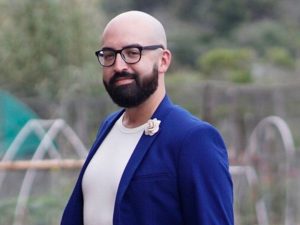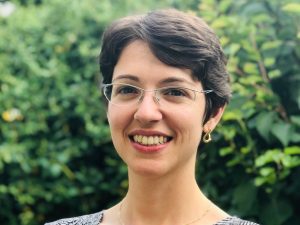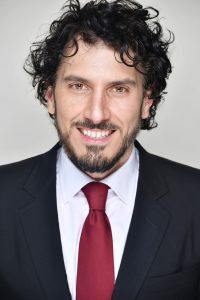Meet the (New) Faculty: Institute for Liberal Arts
It’s a new academic year, with new buildings, new students, and naturally, new faculty.
Here’s a little guide to help you get to know Emerson’s newest full-time instructors.
Next up: School of the Arts.

Juan Sebastian Ferrada
Assistant Professor
Will teach: U.S. diversity
Juan Sebastian Ferrada earned their PhD in Chicana and Chicano Studies at the University of California, Santa Barbara, in 2019. Their dissertation, Latinx Temporalities: The queer time of Spanglish, familia, and Latinx futurity in Santa Ana, California, 2014-2017, examines queer language and cultural practices among Latinx communities to consider how such practices open up new ways of thinking about family acceptance, sexuality, and Latinx time. Their research more broadly encompasses the areas of queer of color critique, raciolinguistics, and the developing field of Jotería studies, which merges women of color feminisms and queer Chicanx studies. Ferrada has published articles in Aztlán: A Journal of Chicana Studies, Sounding Out!: The Sound Studies Blog, and has a forthcoming manuscript in the Journal of Language, Identity, and Education.

Ioana Jucan
Assistant Professor
Will teach: social and cultural theory
A scholar and artist, Ioana B. Jucan works across the fields of theatre and performance studies, media studies, and philosophy. Shaped by feminist and decolonial practices, her research follows several different, yet intersecting, threads: mechanisms of knowledge and value production in the age of “Big Data”; aesthetic and political practices of world-making; and diasporic experience. Jucan’s artistic work spans theatre directing, playwriting, and multimedia performance, and has been performed internationally. She holds a PhD in Theatre and Performance Studies from Brown University, and prior to joining Emerson, was a post-doctoral researcher at the Institute of Sociology and Cultural Organization and the Center for Digital Cultures at Leuphana University Lüneburg in Germany.
ET: What do you most look forward to teaching students?
IJ: Teaching for me is a practice of sharing and making knowledge, of learning and unlearning as part of a community committed to openness, care, respect for difference, and social justice. I look forward to engaging in this practice together with the students as we think through the politics of truth and mechanisms of disinformation in our times.
ET: What was the last new thing you learned?
IJ: In terms of new information, I learned more about the rise of far-right nationalism in Sweden and what contributed to it through an article I recently read. In terms of ways of being in the world, I’m learning patience, a little bit every day.
ET: What do you do when you’re not working?
IJ: I take walks, spend time with family and friends, [and] go to the theatre or the cinema.

Gregory Milano
Scholar-in-Residence
Will teach: history and politics
Gregory Milano is a historian and social theorist specializing in modern European, Latin American, and world history. His academic interests concern histories that explore the effects of economic transformation upon subjectivities. Milano’s current research examines fascism, corporatism, and anti-globalism in Italy during the interwar period. His other scholarly work investigates efforts among Latin American states during the 1930s to create a viable counterhegemonic bloc to U.S. supremacy in the Americas. Prior to joining Emerson, Milano taught at the University of Chicago, Trent University, and Ontario Tech University, teaching courses in history, social theory, political science, sociology, economics, psychoanalysis, and criminology. He earned his PhD from the University of Chicago in 2016.
ET: What do you most look forward to teaching students?
GM: I most look forward to teaching students about the historical specificity of human life today, how (and why) the past 200 years or so represent a fundamental break from the longer experience of the species – for better and worse.
History teaches us how to critically understand and diagnose complex issues of the present. I have a passion for working with my students to investigate and develop an understanding of the origins of today’s challenges to more adequately confront the world of the future.
ET: What was the last new thing you learned?
GM: Over the past few months I have been learning about horticulture after I committed to nursing an ill bonsai tree back to health. Following several months of only modest success, I repotted the little ficus ginseng tree and implemented a proper watering and feeding schedule. It turned a corner in July, and is doing quite well today. As a social theorist, my newfound interest in horticulture has helped me hone an understanding of life, in both its tenacity and fragility.
ET: What do you do when you’re not working?
GM: Forgetting my mantra.
Categories